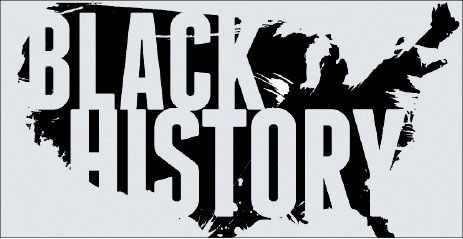(单词翻译:单击)
听力文本
US Educators Re-examine How Black History Is Taught in Schools
For years, Americans talked little about the killing of hundreds of people in Tulsa, Oklahoma, nearly a century ago. When they did talk about the violent incident they called it the Tulsa race riot.
The incident happened over a period of 16 hours, from May 31 to June 1, 1921. It took place in a part of Tulsa where Black Americans operated successful businesses. Mobs of white people attacked Black locals and businesses in an area known as "Black Wall Street."
An estimated 300 people died. Hundreds more were injured, and thousands were left homeless. Black Wall Street was destroyed.
Under new rules developed by teachers, Oklahoma students are urged to consider the differences between calling the incident a "riot" and a "massacre" -- the violent killing of many people. Yet Oklahoma's state laws use the word riot when describing the violence.
The state's new education guidelines are taking effect as a national discussion on racial injustice brings attention to how Black history is taught in schools.
There is no national set of rules on how to teach Black history in the United States. A small number of states have laws requiring that the subject be taught in public schools. Each state sets its own education requirements. History classes often make note of slavery, the rise of Jim Crow laws and the civil rights movement.
Some experts and educators say Black history lessons spend too much time telling about violence and suffering, instead of the systemic parts of racism and white supremacy. But others say past unrest and injustices are not explained enough.
In Texas, the Board of Education recently approved a class on African American studies for high school students. A University of Texas professor involved in developing the course, Kevin Cokley, said his college students say they were taught a sanitized version of Black history in high school.
"Most of my students indicate they did not learn the specifics of slavery that I provide them in my course," said Cokley. "Oftentimes they are shocked and angered to find they were not taught the information I am sharing with them."
Oklahoma schools have been required to teach about the 1921 Tulsa massacre since 2002.

The massacre largely was not discussed in Oklahoma until a group was formed in 1997 to investigate the violence. The group is led by Kevin Matthews, a state senator from Tulsa and a member of the Democratic Party. Matthews said the new teaching rules have not faced opposition. But he noted that some people have said they would rather leave the massacre in the past.
"Older people called me and said, 'Why do you want to bring this back up, this dirty secret?'" he said.
Matthews said his grandmother was a young girl in Tulsa during the massacre, but she never told him about the violence. He learned about it as an adult from his grandmother's brother.
"It was like a movie," Matthews said. "I couldn't believe it happened here."
LaGarrett King is director of the Carter Center for K-12 Black History Education at the University of Missouri. He says he believes there is too much attention being placed on violence in Black history lessons.
King provided training last year for 300 educators who are interested in teaching Black history. He expects an online training program this summer to have more attendees than usual. That, he says, makes him hopeful.
But he notes that history still needs to be presented differently. For example, he said, the country as a whole does not recognize "Juneteenth" as a holiday. June 19 marks the day in 1865 that the last enslaved black Americans learned they had been freed.
"White people don't acknowledge Juneteenth, but yet we're supposed to be a country that believes in freedom," King said. "We have been taught July 4, 1776, is the real Independence Day, but it's not. The vast majority of black people were still enslaved."
Lawrence Paska is executive director of the National Council for the Social Studies. He said schools should be preparing to help students work through questions about discrimination, protests and racial violence when they return three months from now.
"Do we have a curriculum that is responsive to the needs and experiences of the students we have now?" Paska said. "That is an important question schools need to be asking."
I'm Ashley Thompson.
重点解析
重点讲解:
1. talk about 好像;仿佛;
I had a long talk about this with my best friend.
我和我最好的朋友就此事进行了长谈。
2. instead of 换言之;也就是说;
We did the logo in lower-case letters instead of capitals.
我们的徽标用了小写字母,没用大写。
3. be involved in 参与;涉及;
She wants to be involved in every area of your life.
她想参与入你生活中的方方面面。
4. be supposed to 应该;被认为;
If you were a lemon, you would not be supposed to dwell on the sweetness of watermelon.
如果你是一只柠檬,就不该老是盯着西瓜的甜。
参考译文
美国教育工作者重新审视黑人历史在学校的教授方式
多年来,美国人很少谈论一个世纪前,在俄克拉荷马州塔尔萨市杀害数百人的事件。当他们谈到这场暴力事件时,他们称之为塔尔萨种族暴乱。
事件发生于1921年5月31日至6月1日的16个小时内,地点在塔尔萨一个地区。那里的美国黑人成功地经营着企业。在称为“黑色华尔街”的一个地区,一群白人袭击了当地的黑人和企业。
估计有300人死亡,数百人受伤,数千人无家可归。黑色华尔街因此遭到毁坏。
根据教师们制定的新规定,俄克拉荷马州的学生们需要考虑将这一事件称为“暴乱”和“屠杀”之间的区别,屠杀指暴力杀害许多人。然而,俄克拉荷马州的法律在描述暴力事件时,使用了暴乱这个词。
随着全美都在开展一场关于种族不公的讨论,使人们关注起学校中讲授黑人历史的教学方式,该州开始实施新出台的教育指导方针。
在美国,对于讲授黑人历史的方法,并没有一套全国性的规则。少数州具有法律,要求在公立学校教授这门课程。每个州都设有自己的教育要求,历史课上经常会提到奴隶制、吉姆·克劳法的兴起和民权运动。
一些专家和教育家表示,黑人历史课花费了太多时间讲述暴力和苦难,而没有提及种族主义和白人至上的系统内容。但也有人说,过去的动乱和不公并未得到足够的解释。
在德克萨斯州,教育委员会最近批准了一个针对高中生的非裔美国人研修班。参与开发这门课程的得克萨斯大学教授凯文·科克利说,他的大学生们表示,他们在高中时学到的是一种净化版的黑人历史。
科克利说:“我的大多数学生表示,他们没有学到我在课程中提到的奴隶制的具体内容。他们常常感到震惊和愤怒,因为他们并未学过我与他们分享的信息。”
自2002年以来,俄克拉荷马州的学校需要讲授1921年塔尔萨大屠杀。
1997年,俄克拉荷马州成立了一个专门调查该暴力事件的组织。此后,该州才开始讨论这场大屠杀。该组织的负责人为凯文·马修斯,他是塔尔萨州的参议员兼民主党成员。马修斯说,新的教学规则没有遭到反对。但他指出,一些人表示,他们宁愿把这场大屠杀的记忆留在过去。
“年长者打电话给我,说:‘你为什么要提及这段肮脏的秘密?’”。
马修斯说,大屠杀期间,他的祖母是塔尔萨的一个年轻女孩,但她从未给他讲述过有关这场暴力事件的事情。他成年后,从他祖母的哥哥那里得知了此事。
“这就像是一部电影,”马修斯说,“我真不敢相信,这事就发生在这里。”
拉加雷特·金是密苏里大学卡特K-12黑人历史教育中心主任。他说,他相信黑人历史课中,过多的关注暴力。
金去年为300名有兴趣教授黑人历史的教育工作者提供培训。他预计,今年夏天,参加在线培训项目的人将比平时更多。他说,这让他感到充满希望。
呈现。例如,美国不承认“六月解放日”为假日。1865年6月19日,是最后一批被奴役的美国黑人,得知他们获得自由的日子。
日,但我们应该是一个信仰自由的国家。我们学过1776年7月4日,是真正的独立日,但事实并非如此。绝大多数黑人那时仍是奴隶。”
劳伦斯·帕斯卡是全国社会研究委员会的执行主任。他说,学生三个月后返回学校时,学校应该准备帮助学生解决歧视、抗议和种族暴力等问题。
“我们是否拥有一套,能适应现在的学生需求和经历的课程?”帕斯卡说。“这是学校需要回答的一个重要问题。”
艾希礼·汤普森报道。
译文为可可英语翻译,未经授权请勿转载!


